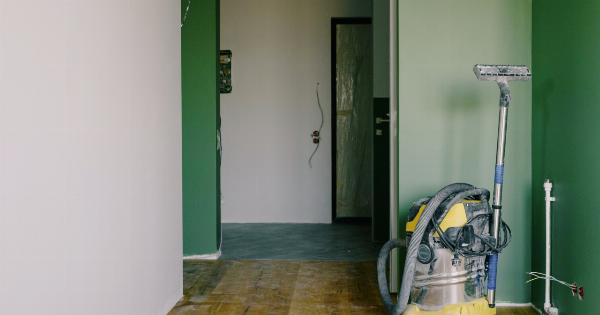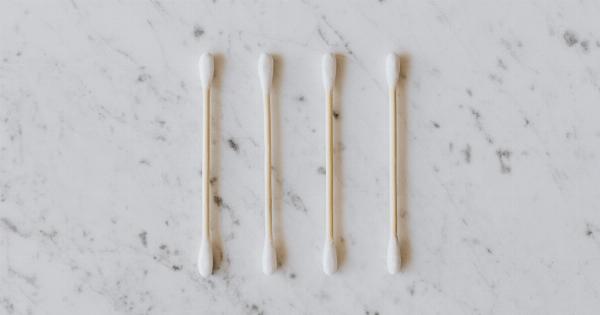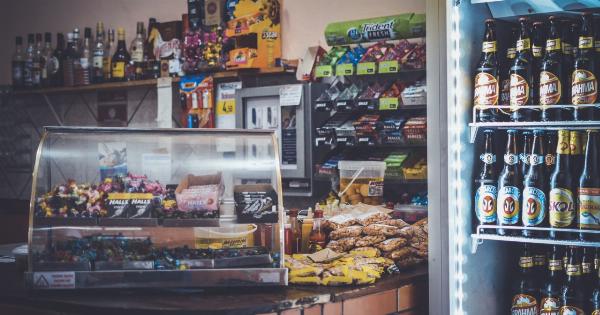Keeping the kitchen clean is crucial for maintaining a safe and healthy environment for cooking and food preparation. It is a space that can quickly accumulate dirt, grease, and grime due to frequent use.
Regular cleaning not only enhances the appearance of the kitchen but also prevents the spread of bacteria, pests, and unpleasant odors. While the entire kitchen should be cleaned regularly, there are certain areas that require more frequent attention. In this article, we will explore the key areas of the kitchen that demand the most frequent cleaning.
1. Countertops and Food Preparation Surfaces
Countertops and other food preparation surfaces are among the most heavily used areas in the kitchen. They come into direct contact with various ingredients, including raw meats, vegetables, and fruits.
As a result, these surfaces can become breeding grounds for bacteria if not cleaned regularly. It is crucial to disinfect countertops after each use to prevent the cross-contamination of foods and maintain a hygienic cooking environment.
2. Kitchen Sink
The kitchen sink is another area that requires frequent cleaning. It is constantly exposed to dirty dishes, food scraps, and used utensils. Bacteria and germs can thrive in these damp conditions.
Regular cleaning of the sink, faucet, and drain not only prevents foul odors but also eliminates potential health hazards.
3. Oven and Stovetop
The oven and stovetop are prone to spills, oil splatters, and food residues. These can quickly accumulate and create a fire hazard if not regularly cleaned. Grease buildup can also affect the efficiency of cooking appliances.
Cleaning the oven and stovetop after each use or at least once a week will ensure safe and efficient cooking and prevent the spread of unpleasant odors.
4. Range Hood and Filters
The range hood and its filters are responsible for removing smoke, grease, and odors from the kitchen. However, they can easily become clogged with grease and other debris, reducing their effectiveness.
It is important to clean the range hood and its filters regularly to ensure proper ventilation. This will prevent the buildup of grease, which can pose a fire hazard.
5. Refrigerator and Freezer
The refrigerator and freezer are crucial for storing perishable foods, and they require regular cleaning to maintain food safety. Spills, leaks, and expired items must be promptly cleaned and removed.
The removal of expired foods not only prevents the spread of bacteria but also keeps the refrigerator organized. Additionally, cleaning the refrigerator coils regularly ensures optimal energy efficiency.
6. Cabinets and Drawers
Cabinets and drawers are often overlooked when it comes to kitchen cleaning. However, they can accumulate dust, dirt, and food particles over time.
Regularly wiping down the cabinet exteriors and cleaning the interior surfaces prevents the buildup of these contaminants. It also helps maintain the appearance and longevity of the cabinet materials.
7. Kitchen Appliances and Utensils
Kitchen appliances such as blenders, toasters, and mixers, as well as utensils, often come into contact with food and require regular cleaning.
Food residues left on these items can become breeding grounds for bacteria and may affect the taste and quality of future food preparation. Regularly cleaning appliances and utensils helps maintain their functionality and prevents contamination.
8. Floors and Baseboards
Kitchen floors are constantly exposed to spills, crumbs, and foot traffic. Regular sweeping or vacuuming followed by mopping prevents the buildup of dirt and minimizes the risk of slips and falls.
Paying attention to baseboards and other hard-to-reach areas helps maintain overall cleanliness and prevents the accumulation of dust and grime.
9. Trash and Recycling Bins
Trash and recycling bins should be cleaned regularly to prevent foul odors and the attraction of pests. Food residues and spills in these bins can quickly become a breeding ground for bacteria and other disease-causing organisms.
It is important to empty, clean, and disinfect the bins frequently to ensure a clean and odor-free kitchen.
10. Dishwasher
Although the dishwasher is responsible for cleaning dishes, it is essential to clean the dishwasher itself regularly.
Food particles, soap residue, and mineral deposits can accumulate inside the dishwasher, leading to unpleasant odors and affecting its performance. Running a clean cycle or periodically cleaning the dishwasher helps maintain its efficiency and ensures clean and hygienic dishes.
Conclusion
A clean kitchen is vital for maintaining a healthy and safe environment. Regular cleaning of key areas in the kitchen, such as countertops, sinks, ovens, refrigerators, and floors, is essential.
By dedicating time to cleaning these areas frequently, you can prevent the buildup of dirt, grease, and bacteria. Effective kitchen cleaning not only enhances the appearance and functionality of your kitchen but also ensures the overall health and well-being of those who use it.






























